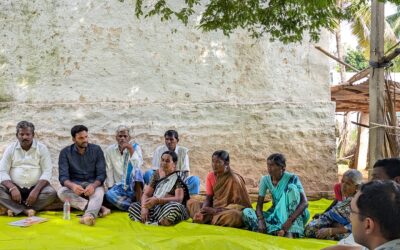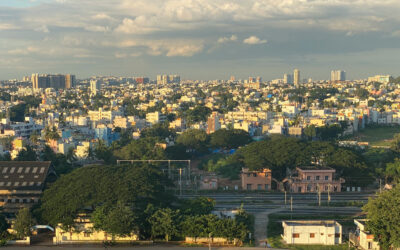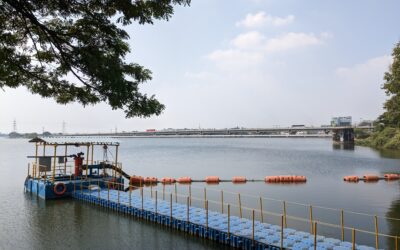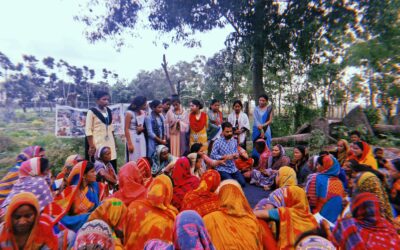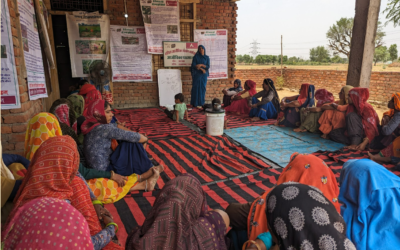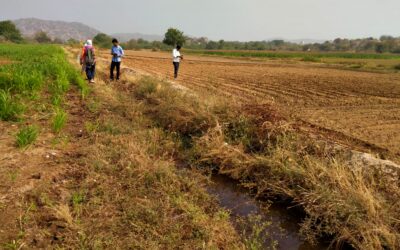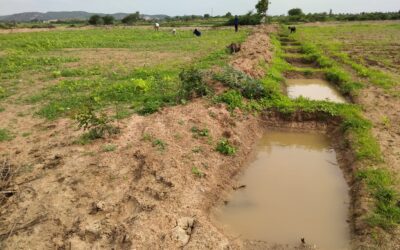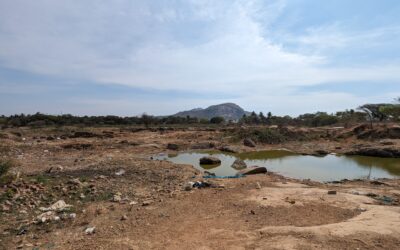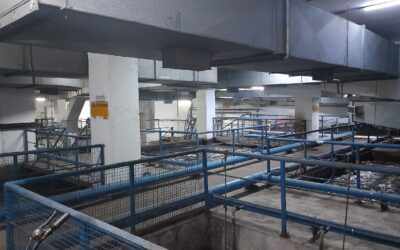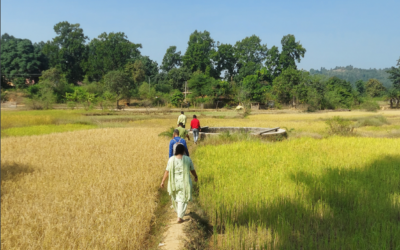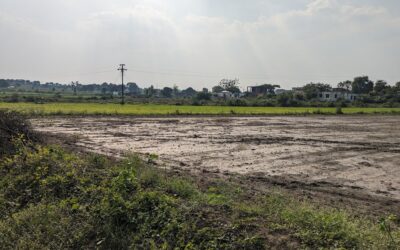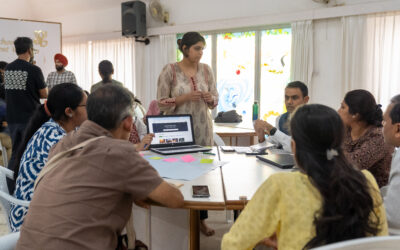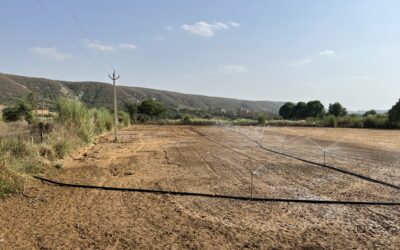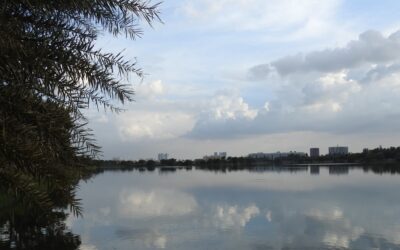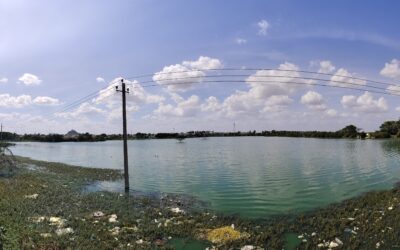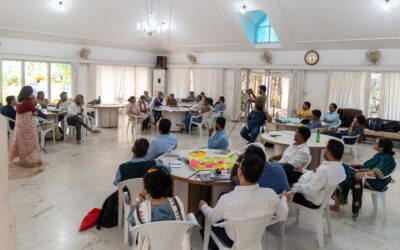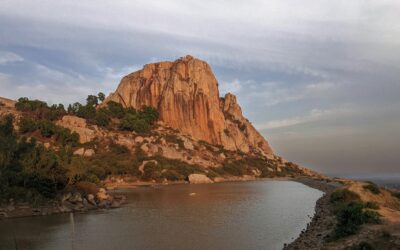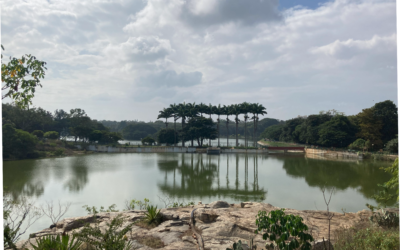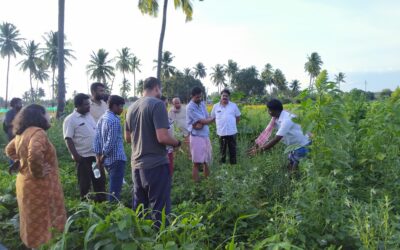Blogs
Urban Water
Rural Futures
Products and Platforms
Community and Outreach
Technical Consulting
GRE Success Stories: Fostering Collaboration for Rural Development
The GRE Clinic has proven to be a catalyst for meaningful collaborations between organisations dedicated to rural development and sustainability.
Building Climate-Resilient Cities with Nature-Based Solutions
In part 3 of this blog series, we look at how nature-based solutions (NbS) can help urban India mitigate and adapt to heat and water stress. We also delve into the work we are doing on NbS.
Bengaluru Has the Highest Number of Decentralised Sewage Treatment Plants Globally. Are They Effective?
WELL Labs and Eawag surveyed decentralised sewage treatment plants in the Yelahanka zone of northern Bengaluru to understand the challenges in urban wastewater treatment and reuse.
Grey to Blue: What Can Bengaluru Learn From Chennai on Tertiary Treatment of Wastewater
Chennai’s Nesapakkam plant is an important project we need to evaluate and consider replicating in other cities because it converts wastewater to potable quality
The Odisha Sandbox: Advancing the Green Rural Economy Through a Place-Based Approach
By integrating the sandbox concept into the Green Rural Economy platform, we aim to create a structured environment that fosters innovation, collaboration, and the practical testing of solutions.
From Pilots to Scale: We Are Documenting Knowledge to Spread Effective Rural Solutions
WELL Labs has partnered with the Axis Bank Foundation to create playbooks, which could be how-to manuals, instructive videos and audio libraries for rural communities to learn and implement new solutions.
How Water Shapes the Lives of Farmers in Raichur: Field Notes from Mandalgudda
We’ve been researching land and livelihoods in Raichur over the past two years. The different strands of our analyses reinforced a known fact of life in the region – that water shapes decisions and livelihoods.
Field Notes from Raichur: Why MGNREGS Remains Key for Water Conservation in Rural India
Digging trench-cum-bund pits is a priority under the National Rural Employment Guarantee Scheme, resulting in both livelihood and water security.
Webinar on Water Security in Karnataka’s Small Towns: 5 Key Learnings
India’s small towns face many complex and intersecting risks. To better understand current challenges and explore opportunities, WELL Labs partnered with BORDA and TIDE to conduct a webinar on building thriving and more water-secure towns.
Bengaluru’s Wastewater Market Experiment: A Promising Solution for Water-Scarce Cities Globally
The economic case for on-site treatment of wastewater is weak. However, the recent water crisis coupled with the new policy has changed that. In this first part of a blog series, we explain what these changes mean for urban water security.
Reflections on WELL Labs’ Journey: Year in Review and the Path Ahead
How do we solve environmental and social challenges at a large scale? We identified four challenges the social impact sector needs to address.
Why Jalna’s Wells Run Dry: Understanding Water and Soil in Drought-Prone Maharashtra
WELL Labs has partnered with the Environmental Defense Fund to scientifically evaluate Jaltara, a water-saving intervention developed by the Save Groundwater Foundation in Maharashtra’s Jalna district. In this blog, we explain how soil, water and cropping patterns are linked.
From Trainers to Playbooks: Insights on Improving the Green Rural Economy Platform
On January 23, we launched the Green Rural Economy platform at a two-day event at the School of Ancient Wisdom in north Bengaluru. In part 2, we delve into the features of the platform and the issues that need to be addressed for it to be an effective platform for change.
Jaltol and Johads: Tracking the Impact of Watershed Management in Rajasthan
Ahead of the Data for Water Security Hackathon, we put together this use case to help demonstrate how Jaltol could potentially be used to more accurately measure how water management efforts by Tarun Bharat Sangh is impacting the region.
Where Does Bengaluru Get Water from?
It is important to understand where Bengaluru gets water from and how it is used to tackle the recurring problems of floods and water shortages.
Wastewater Reuse Policies across Indian States
We reviewed wastewater reuse policies and action plans across Indian states to determine reuse options, targets, and water quality standards.
The Launch of a Consortium-Led Platform to Build Green Rural Economies
On January 23, we launched the Green Rural Economy platform at a two-day workshop at the School of Ancient Wisdom in north Bengaluru. This is part one of a blog series that summarises the intent of the platform and the way forward based on discussions at the event.
Lake Rejuvenation Can Resolve Urban Water Issues, But Only if Done Scientifically
WELL Labs has partnered with DCB Bank and Friends of Lakes to demonstrate a scientific approach to lake rejuvenation that takes into account the ecology and communities’ needs.
What We Learnt from the Water Reuse Project in 2023
We uncovered gaps and opportunities in the wastewater treatment and reuse ecosystem and garnered interest from emerging water-intensive industries.
GRE Clinics: Matchmaking in the Development Sector
Under the Green Rural Economy initiative, we started ‘clinics’ to bring together people who need support or a service, and people who can help them.

